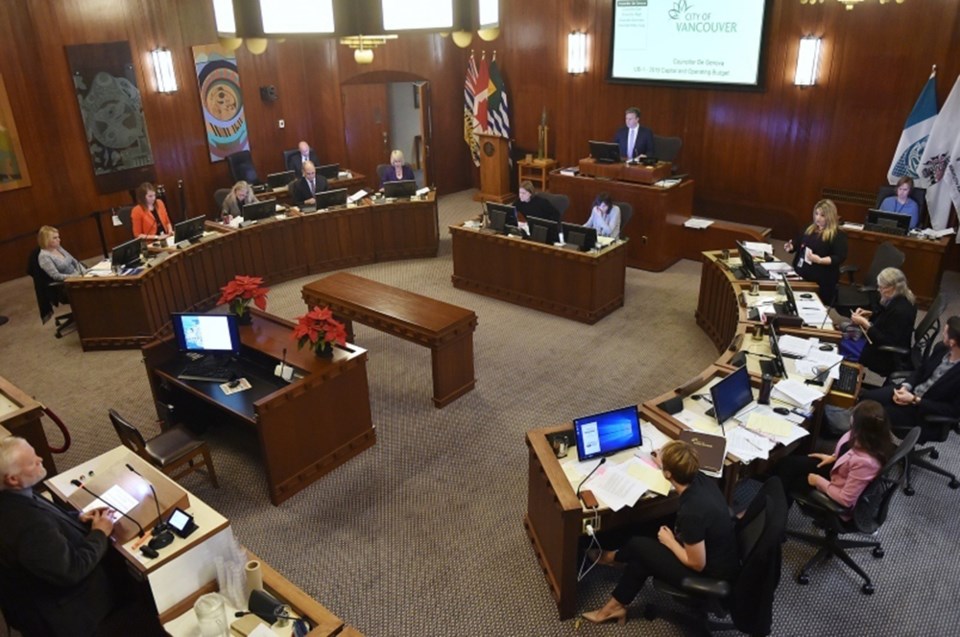Four Vancouver city councillors made the right decision to vote against a motion to contribute $10,000 of city money to the legal challenge of Quebec’s discriminatory Bill 21 legislation. But that doesn’t make Bill 21 any less wrong.
As a grant, a Vancouver city council motion requires eight votes to pass. While five councillors and Mayor Kennedy Stewart voted in favour of the city committing funds to fight Quebec’s controversial legislation, all four independent city councillors – Rebecca Bligh, Colleen Hardwick, Lisa Dominato, and Sarah Kirby-Yung – voted against it. NPA councillor Melissa De Genova was absent.
By no means does this decision endorse or legitimize Bill 21. Rather, it correctly confirms the City of Vancouver’s duties and responsibilities, which simply do not extend to supporting legal or activist campaigns that do not affect the residents of Vancouver.
Enacted by Quebec’s provincial government in June 2019, Bill 21 bans public workers in Quebec (including judges, police officers, and teachers) from wearing religious symbols, such as hijabs, turbans and kippahs. This provincial law – again, exclusive to Quebec – should require intervention from the federal government since Bill 21 seemingly violates the Canadian Charter of Rights and Freedoms.
The federal government, under Liberal Prime Minister Justin Trudeau, has left it up to the courts to rule on various challenges of Bill 21’s legality, including one brought on by the National Council of Canadian Muslims and the Canadian Civil Liberties Association.
Some Liberal Members of Parliament have expressed their belief that the law violates the Charter of Rights and Freedoms. Even Prime Minister Justin Trudeau has stated that he deeply disagrees with the law. Yet, the federal government has effectively done nothing about it.
The other federal party leaders have also been reluctant to voice their opposition to Bill 21, which clearly undermines religious freedoms and workers’ rights.
However, the federal government’s cowardice does not demand municipalities in other provinces to intervene with their own public funds. The City of Vancouver has equity issues of its own, whether it is Reconciliation, homelessness, the drug poisoning crisis, accessibility, climate change, and housing. Vancouver has a lot of work to do in its own backyard and, as a municipality, has a taxing authority that is limited only to property taxes in order to raise the funds to address these issues.
Notably, several other non-Quebec municipalities – including Victoria, Winnipeg, Toronto, Brampton, Burlington, and London – committed public funds to supporting the legal challenge against Bill 21. The City of Ottawa is set to decide if it will commit $100,000 to the cause.
However, the idea that one level of government is going to fight a legal proxy war outside of its jurisdiction with another level of government (of a different province, no less) seems unnecessary. This is especially true as, often, municipalities (rightly) bemoan how senior levels of government cut services and download responsibilities to overburdened city halls. That complaint loses credibility when a municipality spends resources – no matter how “measly,” to use councillor Jean Swanson’s terms – on things that have practically no impact on their own residents.
While the City of Vancouver can sometimes be admired for ambitious projects that attempt to fill the gaps in the absence of senior levels of governments, at least those projects have a clear intent to benefit the residents of Vancouver. In this case, the desire of Mayor Kennedy Stewart and some city councillors to fight Quebec’s government – no matter how worthy the cause – is simply irrelevant to the day-to-day lives of Vancouverites.
Mo Amir is the host of This is VANCOLOUR, Vancouver’s bona fide culture and politics talk show, now also airing on Sundays at 7 p.m. on CHEK.




